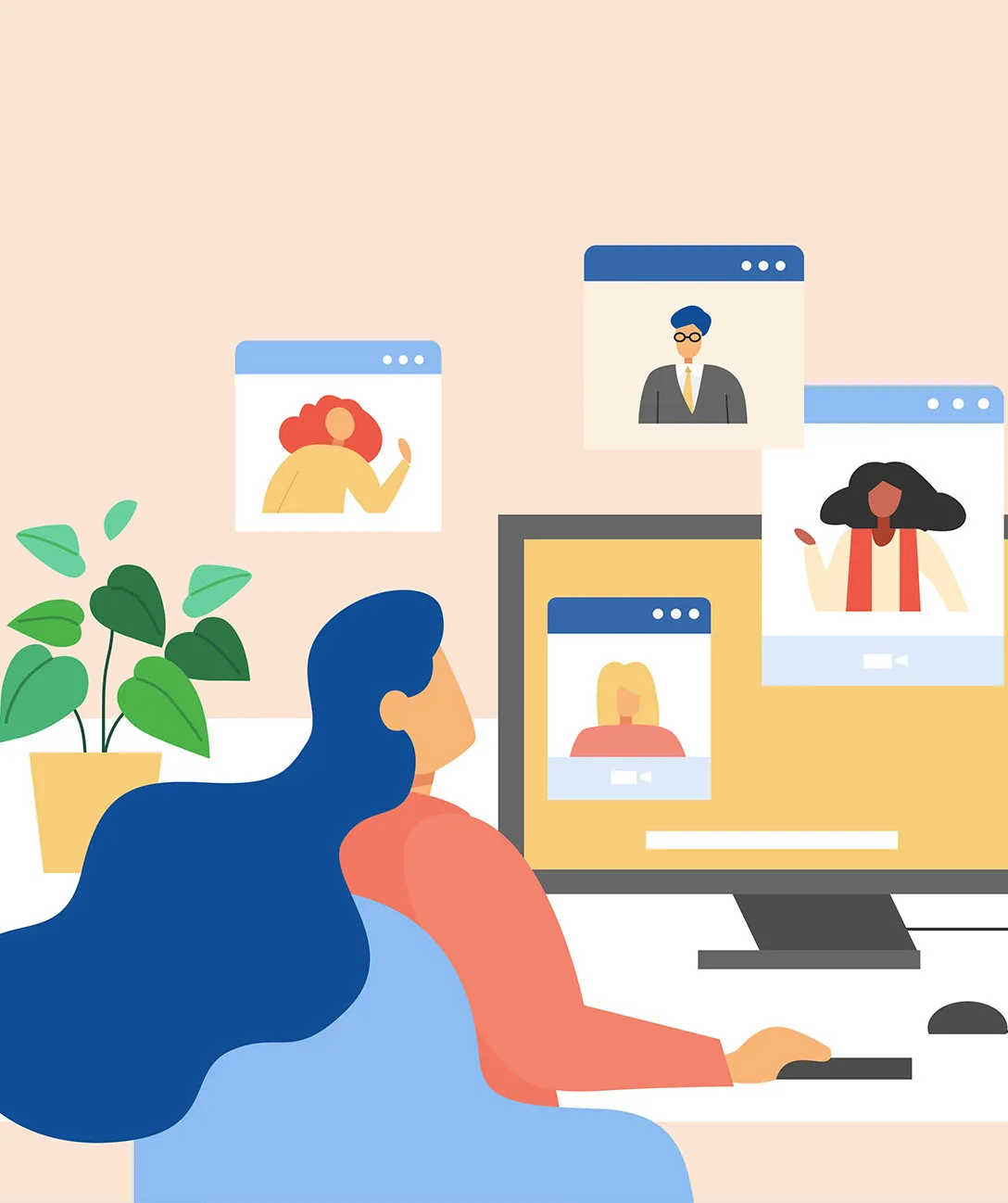Be the first to know
Sign up for a weekly dose of tech hiring news and updates.
Competition is stiff for top tech talent and employers need to deliver a top-notch experience when interviewing software engineers. They need to evaluate candidates quickly and candidates want to evaluate potential employers as well.
When both parties learn new strategies for getting the most out of digital interviewing experiences, employers can more easily identify the best candidates for the job and candidates can better determine which opportunities match their career goals and lifestyle priorities.
Better interviews can improve candidate experience — and this matters just as much for candidates who aren’t hired as for those who are. More than a third (37%) of candidates who’ve had a negative experience with a potential employer report they’ve left a negative review online, so the quality of your interviews can have a direct impact on your employer and consumer brand reputation.
To help everyone involved have a better interview experience (and get more out of the process) here are some tips you can start using today, no matter which side of the interview you’re on.
Tips for employers when interviewing software engineers
Interviewing software engineers remotely presents unique challenges and requires a slightly different approach than in person hiring — especially amid talent shortages — and employers need all the resources they can get to hire the right people.
Tip #1: Allow candidates to turn off video after intros
Video interviews are undoubtedly the next best thing to being together in person, but an always-on video meeting can imply expectations that don’t replicate the real life interview experience. When we meet in person, we don’t maintain eye contact 100% of the time, for example.
Allowing candidates to turn off video, in non-technical interviews, before diving into questions that require deep thought can help candidates focus on their responses, rather than being preoccupied by faces on a screen.
Tip #2: Set expectations before the interview
Letting candidates know what to expect from an interview — the length, format, how many people they will meet with, etc. — will help them prepare. And you want to interview well-prepared candidates to make the best hiring decisions.
Communicate these expectations to candidates in advance, preferably when scheduling the interview, so they have plenty of time to digest the information and plan accordingly.
For more advice on streamlining the candidate experience, read this article.
Tip #3: Use tech tools to assess hard skills
Interviews are a crucial part of the assessment process but they shouldn’t be your only method. Using tech tools to assess hard skills before interviews can give you more information on candidates that you can ask follow-up questions about.
For example, CodeLive allows you to run collaborative, live coding interviews so you can see what a candidate can really do. The objective data this tool provides help you make smarter, more fair decisions about which candidates to move forward.
Tip #4: Make and share a plan for feedback and next steps
Setting expectations for post-interview communication is just as important as the interview itself (especially given what we learned earlier about how negative experiences can impact your employer brand).
Before you wrap an interview, let candidates know what comes next: how and when you’ll contact them, what will happen next if they are selected to proceed, etc. More than half (63%) of candidates aren’t satisfied with the communication from most employers, so this is a salient opportunity to differentiate your company.

Tips for tech candidates in the digital interviewing process
Just like it takes two to tango, the way candidates prepare for and behave can impact the digital interviewing experience as much as what the interviewer does or says. Candidates who want to present themselves in the best light need to know how to do that in remote interviews.
Tip #1: Do your homework
A job interview is a little bit like a test where there isn’t necessarily one correct answer for each question, but there are probably some wrong ones. Before you hop on a video interview, spend some time learning about the company’s history. Get to know the company’s culture and gain at least a general understanding of their products or services.
This information will not only help you decide if the company aligns with your personal priorities and career goals, but can actually help you land the gig. Almost half (47%) of interviewers report they would pass on a candidate if they had little knowledge of the company.
Tip #2: For virtual interviews, control your environment
As much as possible, limit background noise, visual distractions, and other environmental factors that could interfere with your interview. Interviewers appreciate when candidates can devote their full attention to the interview conversation, and fewer interruptions means interviews can be more productive and less frustrating for both parties.
Tip #3: Come prepared with notes on previous projects/accomplishments
Your interview is your chance to tell your story beyond your resume. Make some notes ahead of time about key projects you’ve worked on, accomplishments, measurable results, and any awards or recognition you received in your previous positions.
Having this information handy as a quick reference tool will help you convey the highlights to your interviewer, without any awkward pauses or silences as you struggle to remember all the amazing things you’ve done in your career.

Tip #4: Be honest about technical difficulties
We’ve all been there. You log in to a video meeting and your speakers just aren’t working. Or, a storm rolls in and your internet connection keeps cutting out so you can’t get or stay online at all.
If you’re struggling with technical difficulties before or during an interview, reach out to your interviewer (through another channel, like email, if necessary) and let them know what’s happening.
Chances are, they’ll be happy to reschedule, turn your video interview into a phone interview, or propose another solution — and any of those options are better than wasting their time while you fight with your router or audio equipment.
Tip #5: Practice ahead of time
This advice applies to all job seekers, but if you’re especially nervous or anxious about an interview, then this tip goes double for you. Practicing in advance — alone or with a friend—can help you feel more sure of yourself during an interview.
Knowing how you’ll respond to commonly asked interview questions can help you appear more focused, too. A Harvard Business Review study found that, “72% of job candidates who did not receive job offers, the majority (around 80%) appeared to be distracted, failed to engage their recruiter in a meaningful way, or seemed as though they were reading from a script.”
Questions candidates should consider asking
One of the most effective ways to appear engaged during an interview is to ask questions. This is your chance to interview the interviewer, which shows them you’re knowledgeable and interested in learning, and also helps you collect the information you need to evaluate a job offer when you receive one.
So consider playing that feared “Uno Reverse” card when prepping for your next interview. Instead of Googling tips for candidates, look at what hiring managers are searching for like, “what to look for in a developer.” This will show you a new perspective and help you better prepare for your interview.
Better interviews lead to better hires
Getting acquainted with the emerging best practices for digital interviewing means interviewers can make better decisions about which candidates to advance, and candidates can engage with the companies that truly align with their goals and priorities. When both parties have positive experiences, interviews are more effective, and hiring outcomes naturally improve.
To learn more about preparing for a virtual whiteboard interview, check out this article.
